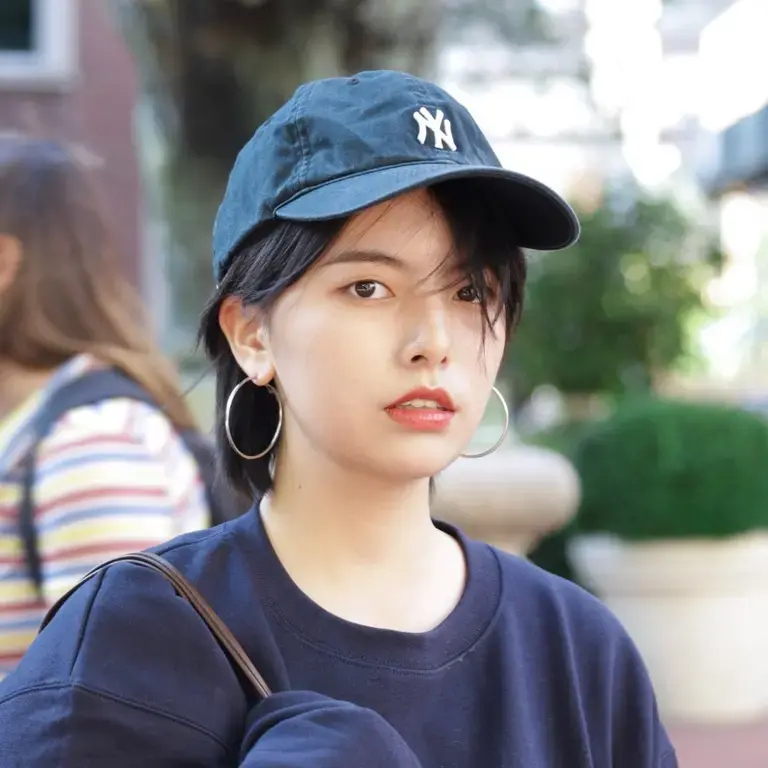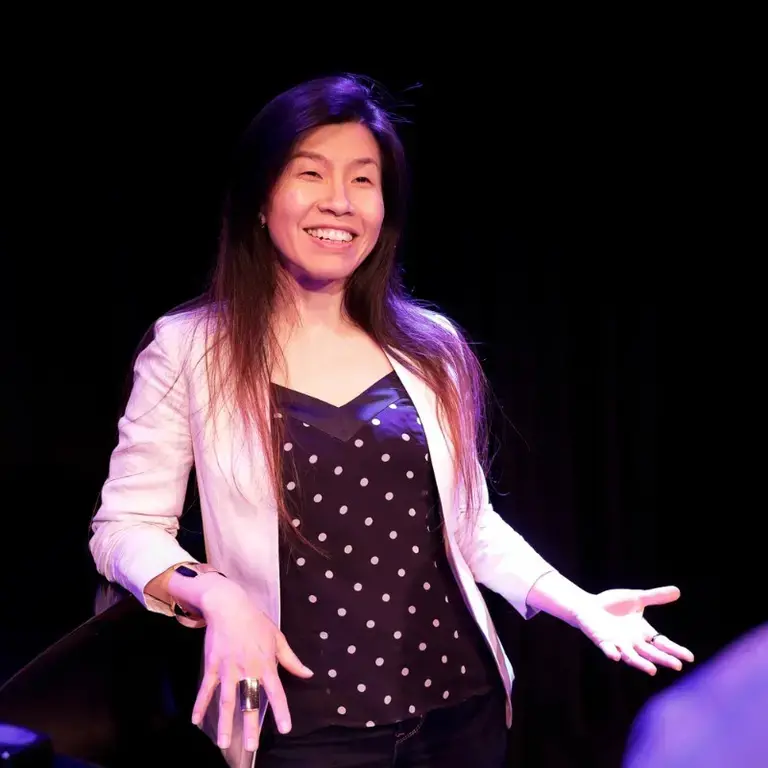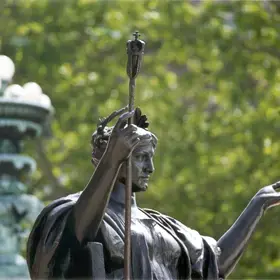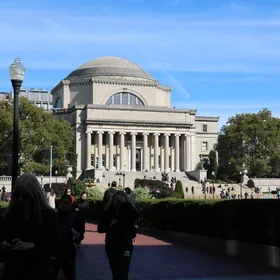Starting on January 22, nearly two billion people around the world—including China, Malaysia, Vietnam, and South Korea—are celebrating the start of the Chinese New Year and the Lunar New Year. We asked Columbia SPS students, faculty, and staff about their families’ traditions and their intentions for the new year.
Photo by Andy Zhao CC’20/Columbia College. Artwork by Huiru Guo '22SPS, Strategic Communication.
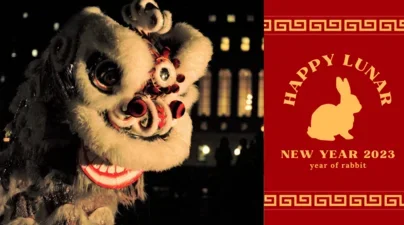
Huiru (Helen) Guo, ’23SPS, Strategic Communication
The essence of Chinese New Year is the family reunion. We have a sumptuous feast on New Year's Eve with all our family members, which makes it the most important and meaningful meal of the whole year. We have many traditions to follow at the festival. Before New Year's Eve, we clean up the home to get rid of any misfortune and buy gifts for family members. And we paste red paper-cuts and Spring Festival couplets on doors and hang red lanterns to express blessings and wishes. On this special night, we also light fireworks and firecrackers for good luck and bid farewell to the old year.
It is customary to post 'fu' on doors or walls on auspicious occasions such as festivals."
For most kids, the most amazing thing about Chinese New Year is the lucky money wrapped in red envelopes given by parents, grandparents, and relatives. I recommend writing the large Chinese character ‘福’ (fu) on a red square paper. It means happiness and blessing in Chinese, so it is customary to post "fu" on doors or walls on auspicious occasions such as festivals. This year, I’d like to make cherished memories in the new year and to be surrounded by loved ones.
Vivian (Eunjong) Na, ’22SPS, Strategic Communication
The Lunar New Year in South Korea is similar to New Year’s Eve in the U.S. It’s family time to bless each other and wish the best of luck for the new year. Traditionally, early in the morning, we visit the elders in the family to wish them a long life and health. Then they give their children lucky money, which is the best part! After that, we eat Tteok-guk, a Korean rice cake soup in the morning because it is believed to bring people good luck for the year and gain a year of life.
We eat Tteok-guk, a Korean rice cake soup in the morning because it is believed to bring people good luck for the year and gain a year of life."
The most important meaning of the lunar new year is family and friends gathering and remembering ancestors. For anyone looking to celebrate, I would recommend having fun with your family and friends, and if you want to explore more, order some Korean foods! Galbi, Japchae, and jeon (aka Korean pancake) are the foods we have on the lunar holiday.
This year will be my last year at Columbia University. I wish to have more fun with my friends and wish everyone to stay healthy.
Phong Luu, Director of Student Services
I am Vietnamese-American/Canadian—I was born in Canada and moved to Boston in 1997—so when I was growing up, my family and I would take the day off from school. We would get dressed—usually in a shirt and tie—and then visit relatives. We’d go house to house to house, starting with my grandmother’s eldest of seven siblings. As a child, you receive blessings from your aunties and you also come to bless their homes as well with your presence. It’s a way of starting the year well. So we would make our way down the family line and then by the evening, we would all gather again together at somebody's house to have dinner together and to celebrate. We used to have like 50 to 60 people stuffed it like sardines in a basement having dinner together!
We would make our way down the family line and then by the evening, we would all gather again together at somebody's house to have dinner together and to celebrate."
A common practice is going into the new year with a clean house, money in your pocket, etc. to set the tone for the next year. And then obviously, there are the iconic red envelopes! Typically, older folks—older cousins, siblings—give these envelopes to children as a blessing. In return for the red envelope, you have to return the blessing to the person giving it to you. So you typically wish them good health, a happy year, and you recall kind of memories and love. The red envelope typically would have a small monetary amount or even a lottery ticket. My grandmother had seven siblings and my mom is the youngest of nine so by the end of the day, there were times I’d get like $100 at seven or eight years old!
This is a generalization, but this is how I interpret it: many people don't typically make Lunar New Year wishes like “this is what I want to accomplish in the next year.” I’d say it's more like a communal giving of blessings. I don't think about what my personal intentions are for the next year; I hope for my family, my cousins, aunties, etc.
My family makes these dishes from scratch. For example, many times we sit in a circle to make kimchi mandu together."
Jessie H. Lee, Nonprofit Management Lecturer
Following Korean tradition, my family gets together for a new year's meal that includes rice cake and kimchi mandu (Korean dumpling) beef bone soup, jachae, bulgogi, galbi jjim, etc. My family makes these dishes from scratch. For example, many times we sit in a circle to make kimchi mandu together.
We do knee bows to our elders and wish them a happy new year and in return, elders give money to wish youngsters their prosperous year. Usually, when you make your own money as an adult, the money from the elders doesn't apply!
In the new year, I would like to find a better balance between work and life, getting better at prioritizing my work based on my interests and the impact I would like to make on people around me and my communities. Part of this goal is to find quality time to rest.
